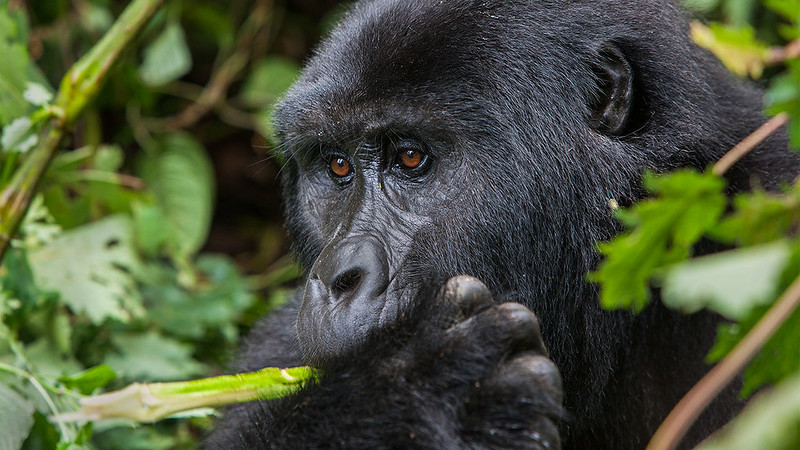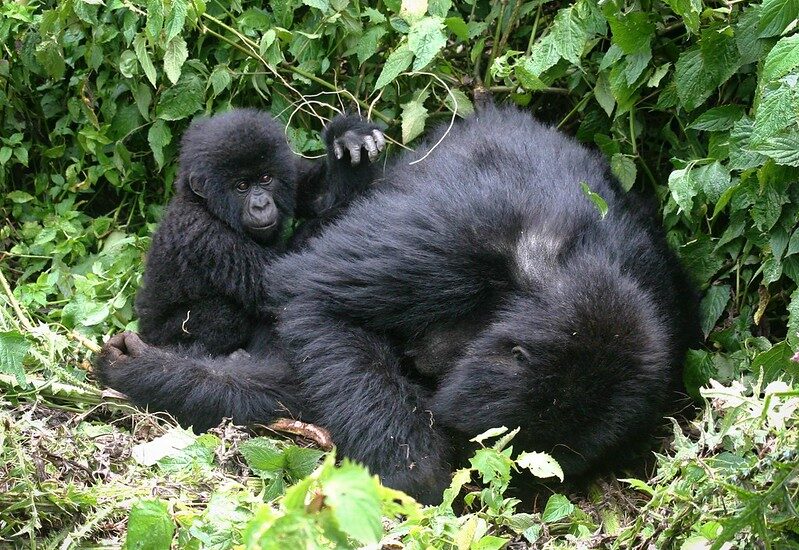Gorilla tracking permits for Nkuringo sector – Bwindi impenetrable National Park. You are currently sleeping…
Why are elephants important?
Why are elephants important?
Elephants, the biggest land animal, serve a critical part in the ecosystem’s maintenance and balance. Elephants are so regarded as a keystone species. A keystone species is an animal (or thing) that contributes to the definition of a whole ecosystem. Ecosystems would suffer and/or cease to exist if keystone species were not there.
What role do elephants play in the ecosystem?
Elephants dig little waterholes during droughts. Elephants develop little waterholes to reach subsurface water when water becomes limited. To get to the water, they dig holes in the earth with their feet and trunks. These drinking holes are then available to elephants and other smaller animals who may have been deprived of water during droughts.
Elephants transport seeds. Elephants distribute seeds in their excrement as they move about. When seeds are distributed meters distant from where the plant was initially eaten, this stimulates fresh plant development. Elephant dung contains a high concentration of nutrients, making it a great fertilizer. As a consequence, seeds can germinate and flourish. Seed dispersal encourages new plant growth, which leads to the formation of new habitats and food for other species.
Elephant excrement is also a source of food for dung beetles. The eggs of dung beetles are laid in dung balls. Beetles lay their eggs in these balls, which they subsequently bury in the earth, where their larvae eat and grow. As dung beetles bury their balls, they soften the densely packed soil as a favorable side effect. This enables plant growth.
The cycle is completed when mice and honey badgers feed on the submerged beetle larvae. Elephants not only aid in the survival of the dung beetle population, but they also aid in the survival of other species such as the honey badger.
Many individuals believe that the dung beetle is unimportant to the ecology. They are, nonetheless, an important part of the ecology. The lack of dung beetles would be evident if elephants and other animals did not provide them with food.
Elephants are beneficially destructive.
An elephant is unstoppable, and we generally think of elephants as destructive creatures when they break branches and smash down trees. This “destructive” character, on the other hand, is vital for the ecosystem and other species. Smaller animals may have been unable to access the trees and branches that they knock down, therefore this helps to guarantee that smaller fauna has access to food. Elephants create habitats for other animals by pushing over trees to feed. These fallen trees provide a habitat for lizards and spiders, allowing smaller species to coexist.
Elephants trample over vegetation and push over trees, creating clearings that enable more sunshine to reach the ground and allow low-lying plants to grow and thrive. This also helps to conserve grassy plains, which provide fodder for species such as antelope, zebra, and buffalo.


